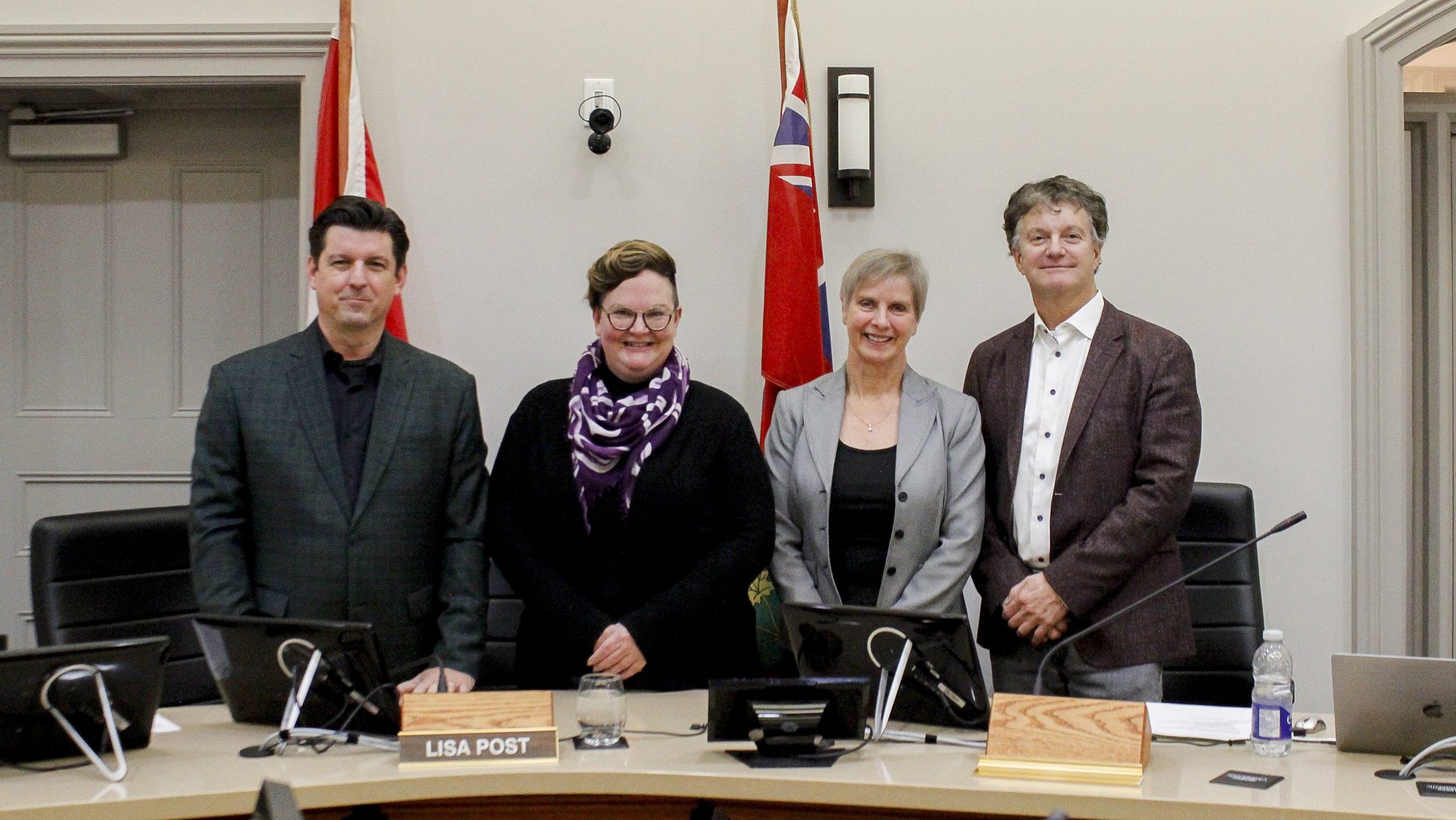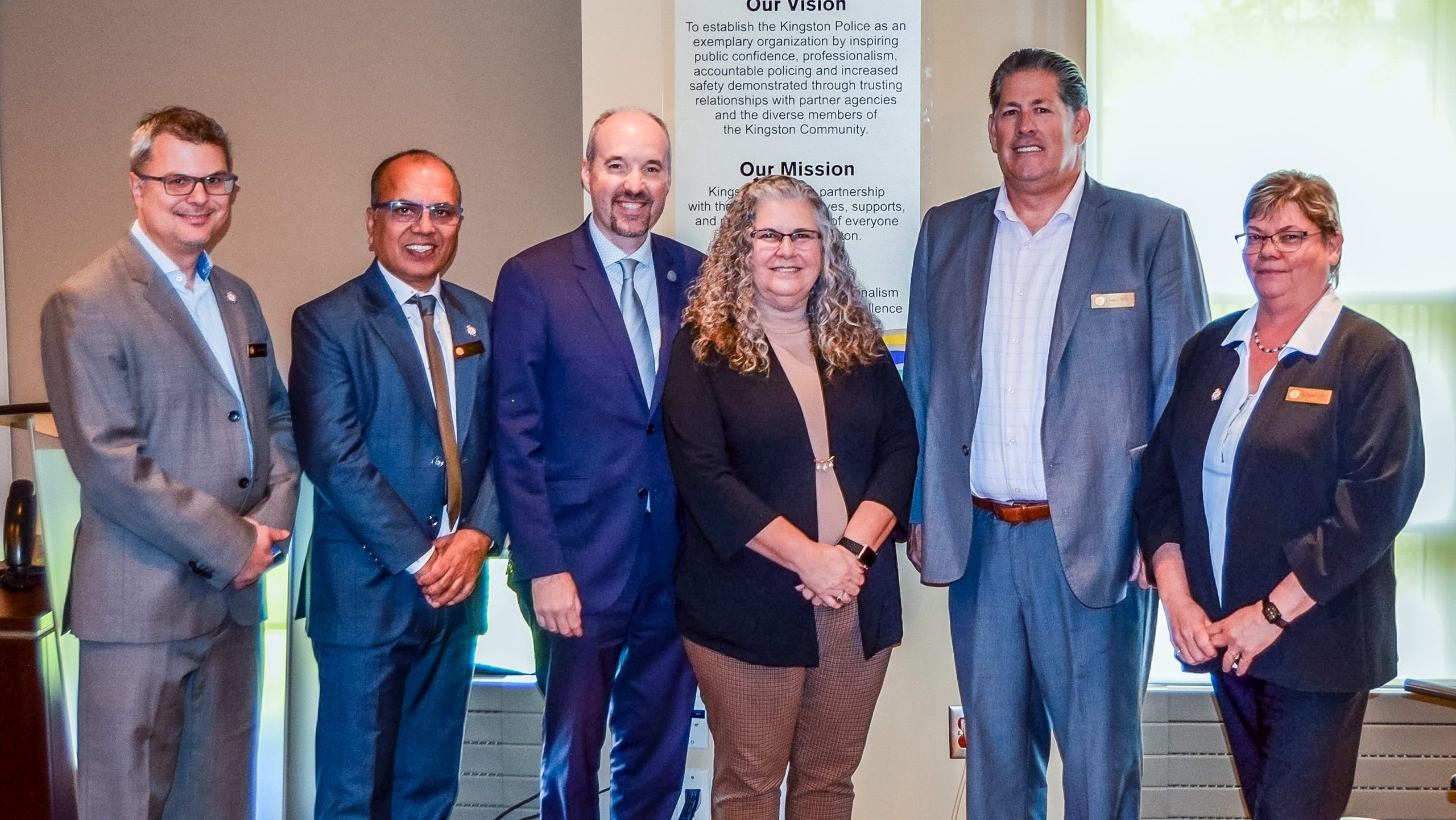“local board” means a municipal service board, transportation commission, public library board, board of health, police service board, planning board, or any other board, commission, committee, body or local authority established or exercising any power under any Act with respect to the affairs or purposes of one or more municipalities, excluding a school board and a conservation authority; (“conseil local”)
Section 1 of the Municipal Act
What is a local board?
Municipalities have the power to create or remove local boards:
Power to dissolve or change local boards
216 (1) Without limiting sections 9, 10 and 11, those sections authorize a municipality to dissolve or change a local board.
Section 216 of the Municipal Act
With the exception of:
- Police Services Board (established by Police Services Act eg. Belleville Police Service Board)
- Public Library Board (established by Public Libraries Act eg. Kingston Library Board and Management)
and others:
(a) a society as defined in subsection 2 (1) of the Child, Youth and Family Services Act, 2017;
(b) a board of health as defined in subsection 1 (1) of the Health Protection and Promotion Act;
(c) a committee of management under the Fixing Long-Term Care Act, 2021;
(c.1) Repealed: 2017, c. 10, Sched. 1, s. 13 (1).
(d) a police service board established under the Community Safety and Policing Act, 2019;
(e) a board as defined in section 1 of the Public Libraries Act;
(f) a corporation established in accordance with section 203;
(g) such other local boards as may be prescribed. 2006, c. 32, Sched. A, ss. 90, 91 (2); 2007, c. 8, s. 218 (4); 2017, c. 10, Sched. 1, s. 13 (1); 2017, c. 14, Sched. 4, s. 23 (2); 2019, c. 1, Sched. 4, s. 33 (6); 2021, c. 39, Sched. 2, s. 16 (3).
Section 216 of the Municipal Act
Examples of local boards
- Local boards (Municipal Service Boards)
- Mandatory
- Police Services Board (established by Police Services Act)
- Library Board (established by Public Libraries Act)
- Mandatory
- External agencies
- Special purpose bodies
- Conservation Authority (Conservation Authorities Act) eg. Quinte Conservation
- Waste Management Board eg. Centre & South Hastings Waste Services Board
- Business Improvements Area Board
- Economic Development Commission eg. Quinte Economic Development Commission
- Regional Marketing Board
- Transit Commission eg. Toronto Transit Commission
- Parking Authority eg. Toronto Parking Authority
- Utilities Commission (Ontario Energy Board Act)
- Arts Council eg. Kingston Arts Council
- Local roads board
- Art Gallery of Guelph
- Board of Trustees of the Elliott
- Guelph Cemetery Commission
- Provincially mandated services
- Social Services & Housing Local Housing Corporation (eg. Kingston & Frontenac Housing Corporation)
- Long-Term Care
- Public Health (expenses split 25% municipal, 75% provincial since 2019) (eg. Ottawa Board of Health)
- Provincial Offenses Board
- Emergency Medical Services Board
- Municipal Property Assessment Corporation
- Special purpose bodies
Local board requirements
Meetings
Local boards – except police services and library boards – are required to have:
- Procedure Bylaw for governing the calling, place and proceedings of meetings
- Meetings that are open to the public, with limited exceptions
Policies
The following local boards:
“local board” means,
(a) a local board as defined in section 1, excluding a police service board and a hospital board,
(b) a local services board, a local roads board and any other board, commission or local authority exercising any power with respect to municipal affairs or purposes in unorganized territory, excluding a school board, a hospital board and a conservation authority,
(c) a district social services administration board,
(d) a local housing corporation as defined in the Housing Services Act, 2011, despite clause 26 (b) of that Act, and
(e) any other prescribed body performing a public function. 2001, c. 25, s. 269 (1); 2006, c. 32, Sched. A, s. 112; 2011, c. 6, Sched. 1, s. 187 (3); 2019, c. 1, Sched. 4, s. 33 (10); 2019, c. 14, Sched. 7, s. 14 (2).
must have the following policies:
Records must be kept, made available upon request
Local boards are required to record their minutes and proceedings at meetings.
Municipal clerks are required to provide, upon request:
- By-laws and resolutions of the municipality and of its local boards
- Minutes and proceedings of regular, special or committee meetings of local boards
- Records considered at a meeting, except those records considered during that part of a meeting that was closed to the public
Records of local boards can be requested by the public under the Municipal Freedom of Information and Protection of Privacy Act.
Local board annual budget must be submitted to the municipality for review & approval
A board of management shall submit its annual report for the preceding year to council by the date and in the form required by the municipality and the report shall include audited financial statements.
Section 207 of the Municipal Act
Oversight
Conduct of members: Integrity Commissioner
The municipality’s Integrity Commissioner is responsible for investigating the Code of Conduct, procedures, rules or policies governing the ethical behaviour of local board members.
See: Hamilton’s Code of Conduct for Local Boards
Meeting closed to the public: Ontario Ombudsman
If you believe that a local board meeting or part of a meeting was closed to the public improperly – ie. the reason doesn’t fall within one of the 14 exceptions – you can submit a complaint to the Ontario Ombudsman or the municipality’s appointed independent meetings investigator.
Missing documents required by law: Freedom of Information request
If you can’t find a copy of a bylaw, policy, or other document required by law, (eg. Conflict of Interest Registry), contact your municipal clerk or members of council and politely ask where you might access it, and if does not exist, remind them that it is required.
If they do not or are not able to produce the document, the next step is to submit a Freedom of Information Act request under MFIPPA to obtain a copy of it.
Municipalities may have other policies, procedures or bylaws in place that apply to their local boards.



Comments
We want to hear from you! Share your opinions below and remember to keep it respectful. Please read our Community Guidelines before participating.